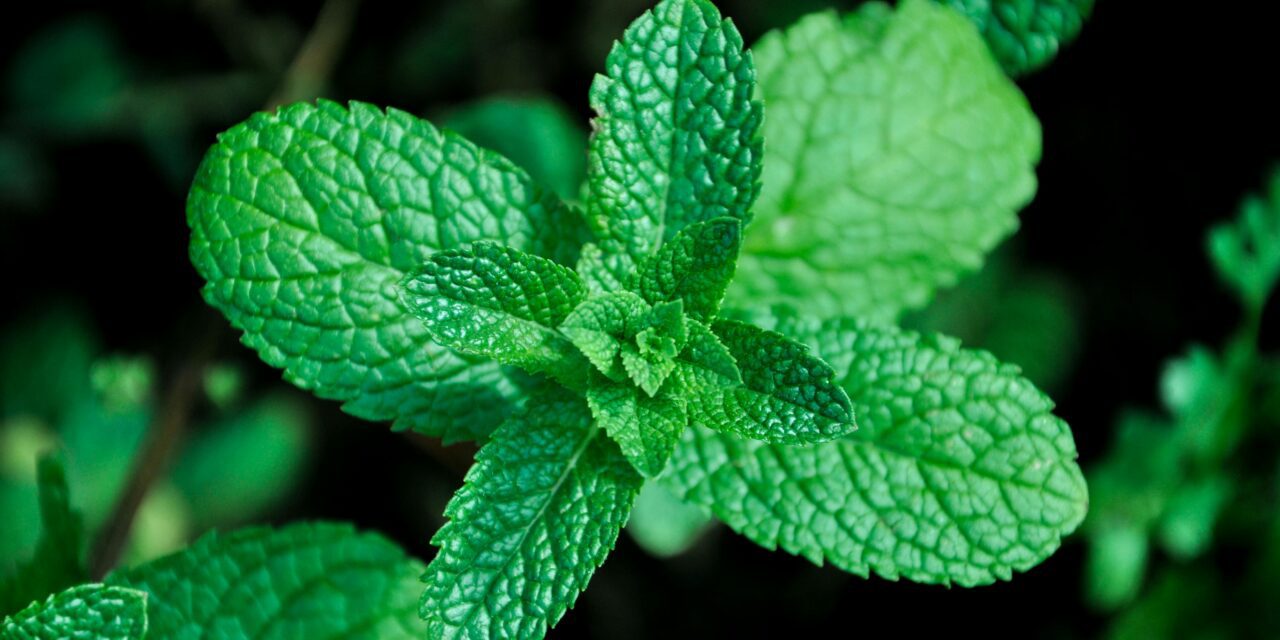Introduction
Let’s Talk About the Benefits Of Mint. Mint has a cool, refreshing taste, making it a popular ingredient in toothpaste, mouthwash, gum, and breath mints. It also adds a fresh flavor to many foods and drinks, like tea, lemonade, ice cream, and even meat dishes like lamb. Mint grows quickly, so gardeners often plant it in containers to keep it from spreading too much. It naturally grows in most parts of the world, except Antarctica. Peppermint and spearmint are the most common types, but others, like wild and water mint, also have health benefits. Some plants, like horsemint and catmint, are called “mint” but belong to a related plant group.
Nutritional Value of Benefits Of Mint
| Nutrient | Amount |
| Calories | 70 kcal |
| Water | 85.6 g |
| Carbohydrates | 14.8 g |
| Fiber | 8 g |
| Protein | 3.8 g |
| Fat | 0.9 g |
| Vitamin C | 31.8 mg |
| Vitamin K | 546.9 mcg |
| Folate (B9) | 114 mcg |
| Calcium | 243 mg |
| Iron | 5.1 mg |
| Magnesium | 80 mg |
| Potassium | 569 mg |
Managing Gastrointestinal Problems
Mint has been used for thousands of years to ease stomach problems like indigestion. Research shows peppermint oil may help with digestive issues, including IBS, stomach pain in children, and nausea after surgery. Mint fights harmful bacteria, relaxes muscles, and reduces inflammation. Some research also found that peppermint oil can safely relieve pain in adults with IBS. While results may vary, mint remains a popular natural remedy for digestive health.
Kiwi is a good source of healthy digestion. If you don’t know the benefits of kiwi. You can check and get the information.
Reducing Breastfeeding Pain
Breastfeeding mothers often struggle with sore or cracked nipples, which can make nursing painful. Research indicates that applying peppermint oil to the skin may help. In one study, only 3.8% of mothers using peppermint gel experienced nipple cracks, compared to 6.9% using lanolin and 22.6% using a placebo. Another study revealed that menthol oil decreased pain and cracking. Mothers applied peppermint oil alone or mixed with gel or water after each feeding. However, a 2022 study found that breast milk was more effective than peppermint water for healing, indicating that more research is needed.
Fresh Breath And Fighting Bacteria
Many people grab mint gum or breath mints to freshen their breath. While these can mask bad breath for a few hours, they don’t eliminate the bacteria causing it.
Drinking peppermint tea or chewing fresh mint leaves might be a better option. Peppermint oil has antibacterial properties, which could help fight the bacteria behind bad breath while also making your breath smell fresh.
Improves brain Function
Mint may help improve brain function by boosting alertness, memory, and focus while reducing mental fatigue. Its essential oils, which are mainly inhaled, are responsible for these benefits.
A 2022 animal study found that the scent of peppermint oil improved learning and protected brain cells.
Another study in 2015 showed that smelling peppermint oil while driving increased alertness and reduced stress and fatigue. While these findings are promising, more research is needed to confirm how peppermint affects brain function.
Supports a Healthy Pregnancy
Mint can be a soothing remedy during pregnancy, especially for common issues like nausea, bloating, and indigestion. Many pregnant women find that drinking mint tea or inhaling its scent helps relieve morning sickness and promotes better digestion. Mint’s natural cooling effect can also ease stomach discomfort. However, consuming too much mint, especially in the form of strong essential oils or high amounts of tea, might trigger heartburn or irritation. While mint is generally safe in small amounts, it’s always best to check with a doctor before using it regularly during pregnancy.
Relieve Stress And Heart Health
Mint can help ease stress, fatigue, and anxiety. Its calming effect may relax your mind and body. Simply eating a peppermint candy, sipping mint tea, or using mint oil in a diffuser can help you feel more at ease. Peppermint may also support heart health by lowering blood pressure, which can be beneficial for managing stress.
One Study used peppermint to reduce blood pressure. When you feel overwhelmed, taking deep breaths with the scent of mint or enjoying a warm cup of mint tea can help you relax and regain focus.
Conclusion
Mint is much more than just a refreshing flavor — it offers a wide range of potential health benefits. From soothing digestion and easing breastfeeding discomfort to freshening breath and supporting brain function, mint can be a helpful addition to your daily routine. It may even help reduce stress, promote heart health, and provide relief during pregnancy when used in moderation. Whether you enjoy it as tea or use essential oil, mint is a simple, natural way to support your health. However, it’s always wise to use mint in reasonable amounts and consult a healthcare provider, especially during pregnancy or if you have any health conditions. With its refreshing taste and possible health perks, mint is a versatile herb worth keeping in your wellness routine.













Recent Comments